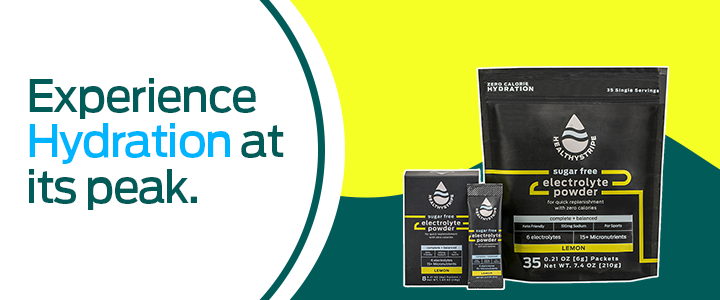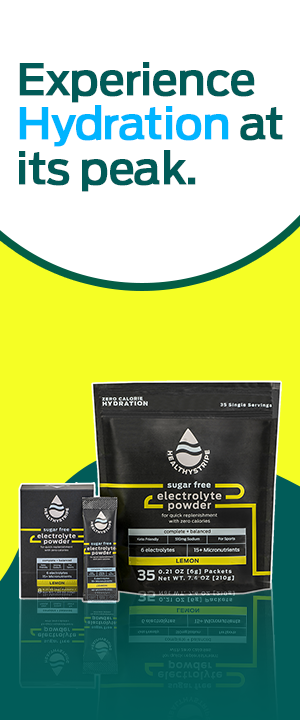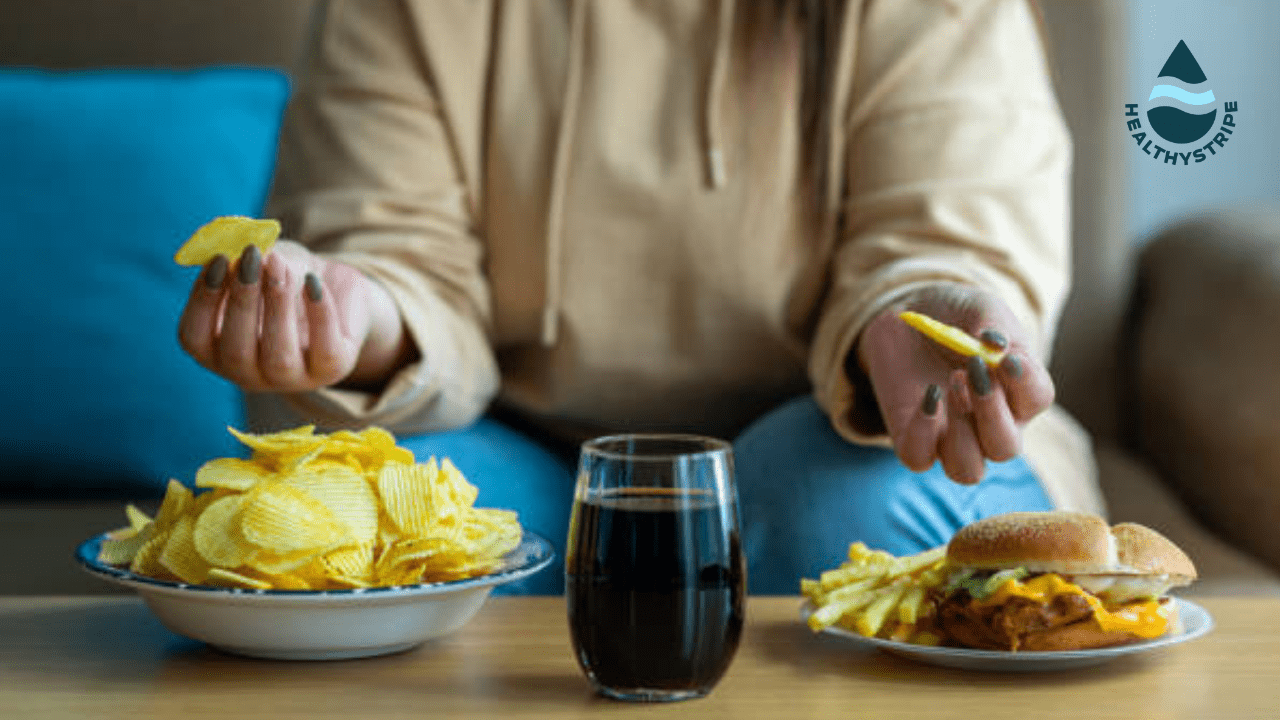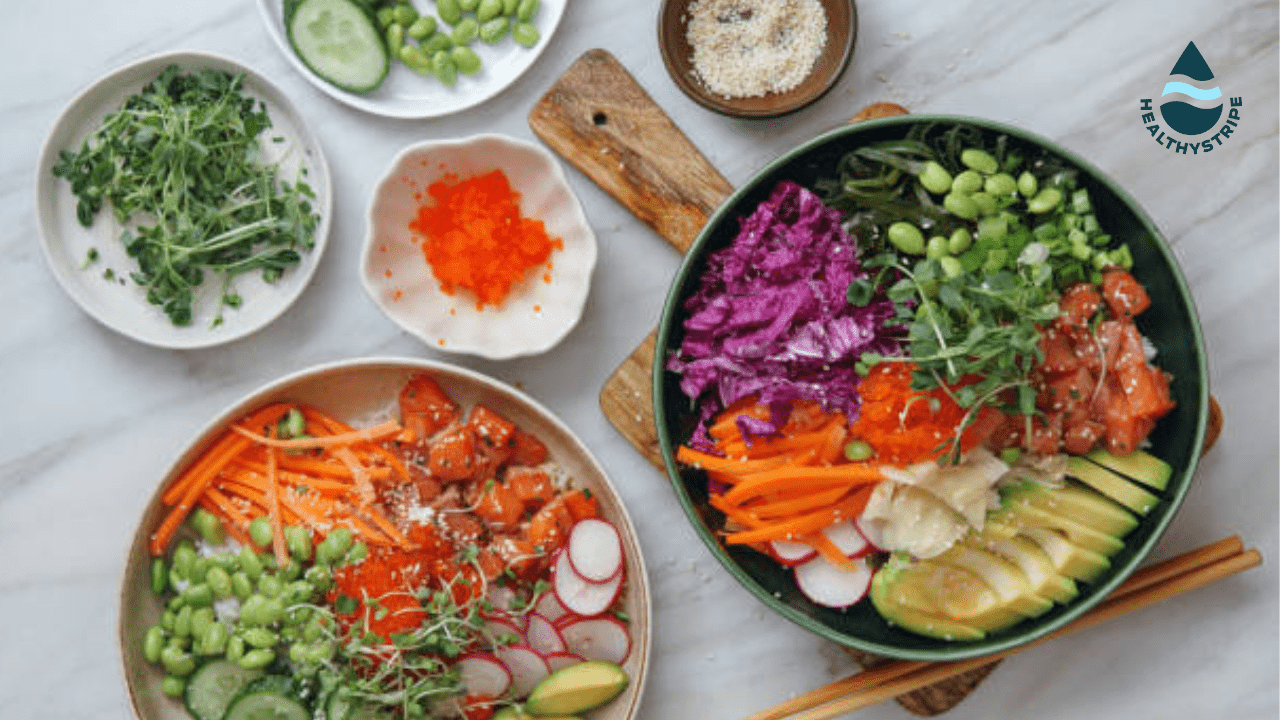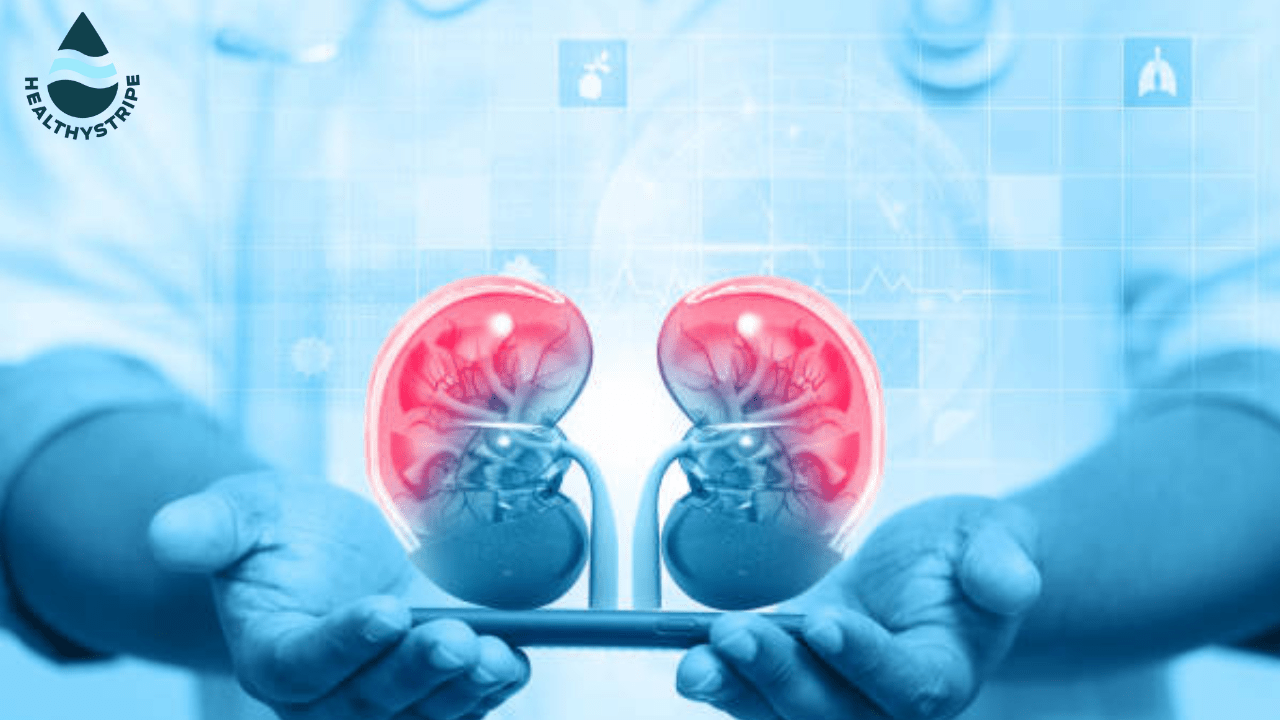
Kidney stones, solid mineral deposits that form in the kidneys, can cause intense pain as they pass through the urinary tract. Approximately 12 percent of Americans experience kidney stones (1). Not just that having one stone increases the likelihood of developing another within a decade.
While there is no foolproof method for preventing kidney stones, especially if there is a family history of the condition, making changes to your diet, lifestyle, and considering certain medications can help reduce the risk.
What kidney stones and why are they a concern?
Any chemical imbalance due to low water consumption, or any secondary cause like parathormone imbalance can lead to the development of stones or hard mineral masses that can be extremely painful. If you are suffering from frequent dehydration, having a fructose-rich meal or consuming a high-calcium diet you can be at risk of developing kidney stones. Let’s learn about renal colic ( kidney stones), its causes and prevention.
Kidneys are the natural filters of our bodies. Our body contains a lot of essential minerals that are indispensable for the proper functioning of bodily mechanisms. Just like a supersaturated solution starts forming crystals, excess minerals like calcium, oxalate, and uric acid in your urine can crystallize and lead to kidney stones. Now you might think about how they harm your body. Well, these crystals aggregate and form stones.
While most of these stones are non-symptomatic and pass through the urinary tract, the larger ones can become symptomatic. They might get lodged anywhere in your urinary tract and cause abdominal and flank pain along with blood in urine, fever, and nausea. In rare cases, the urine may also revert back to its source i.e. the kidney, and produce hydronephrosis. It results from the occlusion of the urinary tract by stones.
What causes kidney stones?
It is estimated that half a million kidney disease cases get reported in the Emergency Department annually. Reports also claim that one in 10 people will suffer from kidney stones at least once in their lifetime. So what causes kidney stones? Kidney stones can be due to the aggregation of different types of minerals. The major types of kidney stones include calcium stones, which are the most common; uric acid stones, formed from excess uric acid in the urine; struvite stones, associated with urinary tract infections; and cystine stones, caused by a rare genetic disorder leading to high levels of cystine in the urine.
Symptoms of kidney stones
Kidney stones become symptomatic if they are big enough to get trapped in your urinary tract. They usually cause the following symptoms
- Flank pain- You might experience a dull annoying pain in the lower right or left back region.
- Vomiting- A classic feature of colic pain is pain associated with vomiting.
- Hematuria- Blood in the urine can be due to internal wall abrasion by the occluding stone. Other reasons can be kidney diseases and infections.
- Painful Micuration- Often the stone will passing causes abrasion of the urinary tract. Internal abrasion combined with swelling and infection can cause painful micturition.
- Difficulty in urination- Pain and irritation combined with blockage of the tract by the stone can make it extremely difficult to urinate.
- Urinary Urgency – If the stone moves down to your groin, you’ll feel a greater urge to urinate.
- Febrile- Infection along with Fever is quite common in renal colic
- Smelly urine- This could be due to the added infection. 16% of acute renal stone cases are known to mimic a UTI ( Urinary Tract Syndrome)
How are kidney stones diagnosed?
Kidney stones ( renal colic) usually present with the symptoms of flank pain, and vomiting along with fever and urinary tract infection. Along with a thorough medical history, the following tests can be done.
- Blood test- Infection or biochemical causes of the problem can be detected with blood tests.
- Urine Test- Urine culture and routine urine tests can rule out infection or other metabolite levels in the urine.
- The confirmatory diagnosis is achieved by a CT( computed tomography) scan that helps to locate the location and size of the stones. USG or Ultrasonography can also be an option for people who suffer from recurrent kidney stones or are pregnant.
What are the treatment options for kidney stones?
Kidney stones aren’t symptomatic till they are lodged in the kidney. Once they are in the tract, even the small ones can be quite painful while urinating. The management involves pharmacological as well as surgical management.
- Painkillers- The aim of medical management is to decrease the pain- Oral or Iv narcotics can help manage the pain. If you have any comorbidity like hypertension and diabetes or have an acute attack of renal stones, Ibuprofen is generally contraindicated.
- Anti-emetic – To control the symptoms of nausea and vomiting.
- Anti-inflammatory- Drugs like Tamsulosin and nifedipine help your urinary tract relax for the easy passage of stones.
Surgery. There are four types of surgeries used to treat kidney stones. The first three are minimally invasive, meaning that the surgeon enters your body through a natural opening (like your urethra), or makes a small incision.
- Ureteroscopy: This method passes an instrument via your ureter and breaks down the stones using a laser for easy passing via urine.
- Shockwave lithotripsy: In this method, shockwaves are passed through water to break the stones which are then retrieved.
- Percutaneous nephrolithotomy: If the stone is too large to be operated on via the above-mentioned ways, this procedure is applied where an incision is made to pass a tube that retrieves the broken stone parts. Thereafter a stent is placed and the patient is kept for overnight observation.
Best ways to prevent kidney stones:
- Stay Well-Hydrated: Drinking an ample amount of water is the most effective way to prevent kidney stones. Insufficient fluid intake leads to concentrated urine, which is less capable of dissolving the substances that cause stones. Lemonade and orange juice, containing citrate, can also be beneficial. Aim to drink around eight glasses of fluids daily or enough to produce two litres of urine. Those who exercise or sweat profusely, as well as those with a history of cystine stones, may need additional fluids. Monitor the color of your urine; clear or pale-yellow urine indicates proper hydration, while dark urine suggests the need to drink more.
- Consume Calcium-Rich Foods: Contrary to common belief, calcium should not be avoided as it plays a crucial role in preventing kidney stones. Calcium oxalate stones, the most prevalent type, may actually result from a low-calcium diet. However, it is advisable to avoid calcium supplements, as they may increase the risk of stone formation. Consuming low-fat milk, cheese, and yogurt is recommended to obtain adequate calcium.
- Reduce Sodium Intake: A high-salt diet raises the risk of calcium kidney stones. Excess salt in urine impedes the reabsorption of calcium from urine into the blood, leading to increased urine calcium levels and potential stone formation. Lowering sodium intake helps maintain lower urine calcium levels, reducing the chances of developing kidney stones. Carefully read food labels to identify sodium content. Processed foods, canned soups and vegetables, lunch meats, condiments, and certain food additives should be avoided or limited. Instead of salt, try using fresh herbs or salt-free herbal seasoning blends to enhance the flavor of meals.
- Limit Foods Rich In Oxalate: Oxalate, a natural compound found in certain foods, combines with calcium in urine to form kidney stones. By restricting the consumption of oxalate-rich foods, the likelihood of stone formation can be reduced. Examples of such foods include spinach, chocolate, sweet potatoes, coffee, beets, peanuts, rhubarb, soy products, and wheat bran. Consuming high-oxalate foods alongside calcium-rich foods can help mitigate stone formation, as oxalate and calcium bind together in the digestive tract, making it more challenging for stones to develop.
- Moderate Animal Protein Intake: Foods high in animal protein, known to be acidic, can increase urine acidity. This elevated acidity may contribute to the formation of both uric acid and calcium oxalate kidney stones. It is advisable to limit or avoid the consumption of beef, poultry, fish, and pork.
- Exercise Caution With Vitamin C Supplements: Vitamin C (ascorbic acid) supplementation, particularly in high doses, has been associated with an increased risk of kidney stone formation, especially in men. However, consuming vitamin C from natural food sources does not carry the same risk.
- Consider Herbal Remedies With Caution: While Chanca Piedra, also known as the “stone breaker,” is a popular herbal folk remedy for kidney stones, its efficacy is not well-established. Some believe that this particular herb can help in the prevention of calcium-oxalate stones while reducing the size of different existing stones. However, there is a lack of research regarding the reliability of herbal medicine. If dietary changes are not enough to prevent stones in the kidney, you can also try medications. However, keep in mind that you might have to talk to a doctor before actually taking the medications.
- Talk About Any Current Medications You Have: There are certain medicines that can actually increase the formation of kidney stones in the body. These can include diuretics, anticonvulsants, protease inhibitors, decongestants, steroids, chemotherapy drugs, and uricosuric drugs. Long-term use of these medications increases the risk of kidney stones. Consult your doctor about alternative medication options, and do not discontinue any prescribed medications without proper medical guidance.
- Explore Preventative Medications With Your Doctor: If you are prone to specific types of kidney stones, certain medications can help regulate the levels of stone-forming substances in your urine. But these medications are provided on the basis of the kidney stones that you might have. For example, a thiazide diuretic or phosphate may be recommended for calcium stones, allopurinol (Zyloprim) for uric acid stones, long-term antibiotics for struvite stones, and capoten (Captopril) for cystine stones.
Conclusion
In conclusion, taking simple steps can help prevent kidney stones. Co-morbidities like hypertension, gout, and cystinuria can pose an increased risk of renal colic or nephrolithiasis. If the symptoms persist, you should visit the ER. If you have recurrent episodes, it is advisable to regularly monitor your blood mineral and hormone levels. Stay hydrated by drinking enough water, avoid excessive salt and high-oxalate foods, maintain a healthy weight, limit animal protein and vitamin C intake, and engage in regular physical activity. By adopting these habits, you can reduce the risk of kidney stone formation and enjoy better overall kidney health.
Can kidney stones cause long-term damage to the kidneys?
Long-term or recurrent kidney stones can cause frequent infections of the bladder and kidney. In rare cases, the infection can also lead to bacteremia due to the spread of the infection to your bloodstream.
What are the best drinks for kidney stones?
The best drink for preventing kidney stones is water. Lemonade and orange juice can also be beneficial due to their citrate content.
Where does kidney stone pain occur?
Kidney stone pain typically occurs in the back or side of the body, below the ribs, and can radiate to the lower abdomen and groin area. Seek medical attention if you suspect kidney stones or experience severe pain.
How to pass kidney stones fast?
To pass kidney stones quickly, it is recommended to stay well-hydrated and drink plenty of water. Pain medications may be prescribed to alleviate discomfort. In some cases, procedures like lithotripsy or ureteroscopy may be performed to break up or remove larger stones.
How to avoid kidney stones?
To reduce the risk of kidney stones, it is important to stay hydrated by drinking an adequate amount of water throughout the day. Avoid consuming excessive amounts of salt and reduce your intake of high-oxalate foods such as spinach, rhubarb, and beets. Maintain a healthy body weight, as obesity increases the risk of kidney stones. Limit your intake of animal protein and avoid excessive consumption of vitamin C and calcium supplements. Lastly, engage in regular physical activity to promote overall health and prevent kidney stone formation.




